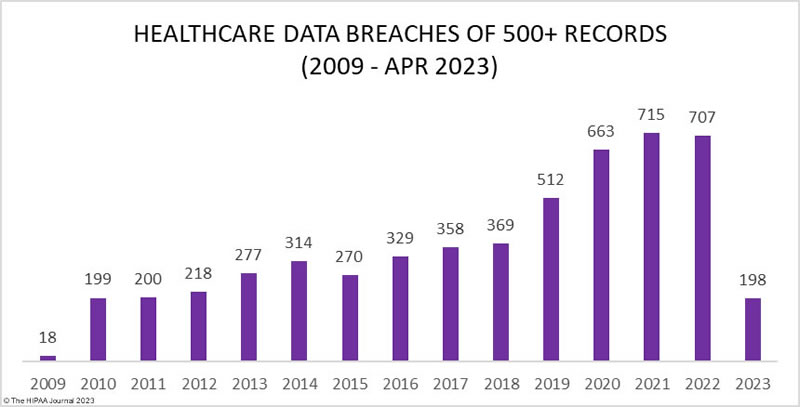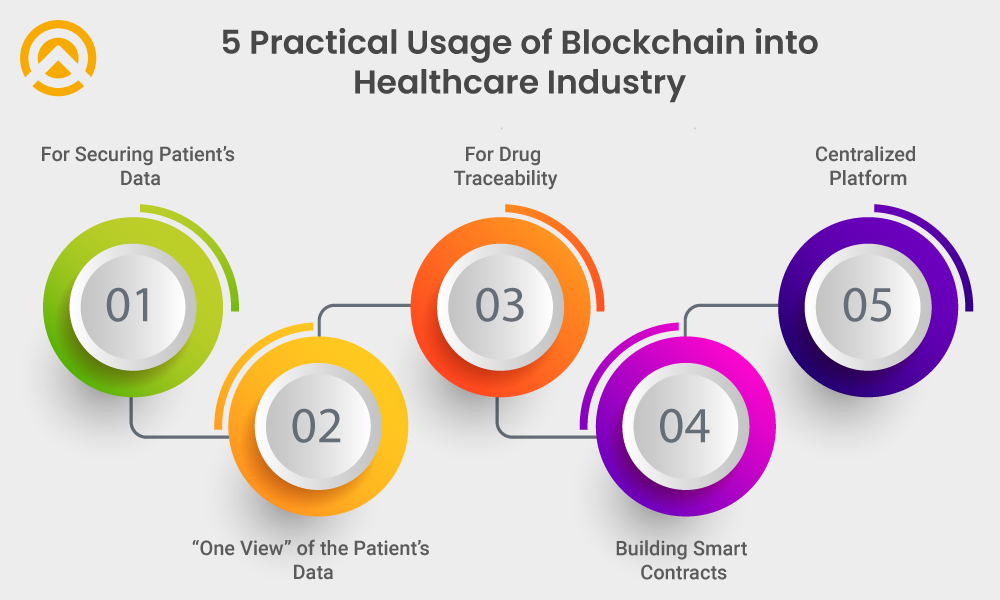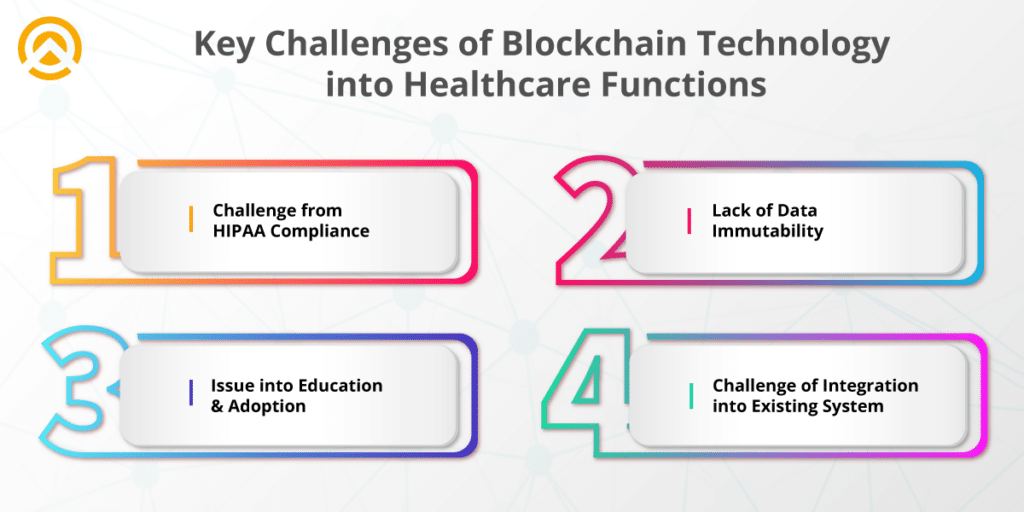How Blockchain is Advancing The Healthcare Industry in 2023?
At the global level, it’s time to embrace cutting-edge changes in healthcare domains. Currently, many healthcare institutions are plagued with outdated record-keeping systems and it’s time to transform them with the web 3.0 blockchain-enabled technology.
According to the official research conducted by Precedence Research – the blockchain technology market accounted for $ 5.7 billion in the year 2021. This market is showcasing a huge potential for growth and it will touch a valuation of $ 1.59 trillion by the year 2030. It means that from 2022 to 2030 – this market will grow at a CAGR of 87.1% from 2022 to 2030.
Specifically, in the healthcare industry, the blockchain can decentralize digital ledger to drastically improve this system. Although, to empower the use of blockchain it is mandatory that hospitals and policymakers are required to come-up with certain regulations and rules.
Experts believe that the healthcare industry will understand the potential of blockchain app development soon. As, this industry is forecasted to grow with a CAGR of 87.1% – this implies that soon healthcare & other industries will elevate their operations with it.
Moreover, in this blog, we’ll cover an extensive discussion related to the benefits of linking healthcare operations with blockchain to bring out a new revolution. This movement will also empower the operations of blockchain app development companies.
Blockchain Will Transform the Traditional Medical Record-Keeping System
The HIPAA Journal incorporated a detailed report related to medical record breaches. This report is made by incorporating data from official the “Department of Health and Human Services”. Around 5,150 data breaches occurred during the time period of Oct 21, 2009 to Dec 31, 2022. The investigation is still in progress by OCR for potential HIPAA violations.

So, to put a permanent stop to data breaches it is important that the healthcare industry is required to adopt a new generation of recording-keeping solutions. Blockchain app development services can effectively stop the act of data breaches in this industry.
The implementation of blockchain technology in medical record keeping has the potential to transform the healthcare industry. It offers enhanced security, integrity, interoperability, and patient empowerment. By leveraging blockchain, healthcare providers can overcome the limitations of the traditional system and provide better care while protecting patient privacy.
1. Decentralized and Distributed Ledger
Blockchain technology operates as a decentralized and distributed ledger that securely records and stores transactions across multiple nodes or computers. This decentralized nature ensures that no single entity has complete control over the system, making it highly resistant to unauthorized tampering or manipulation. Medical records stored on a blockchain are encrypted, ensuring that patient data remains secure and private.
2. Immutable Audit Trail
By utilizing blockchain for medical record-keeping, healthcare providers can ensure the integrity and authenticity of patient information. Every transaction or change made to a medical record is recorded on the blockchain, creating an immutable audit trail. This enables traceability and accountability, reducing the risk of errors and fraud. Additionally, healthcare providers can easily verify the accuracy of medical records, streamlining the process of accessing patient information.
3. Medical records will be shared across authorized parties only
The adoption of blockchain technology also enhances interoperability in the healthcare industry. Currently, medical records are fragmented across different healthcare systems and providers, making it challenging to access a patient’s complete medical history. With blockchain, medical records can be securely shared and accessed by authorized parties, facilitating better continuity of care and enabling healthcare providers to make more informed decisions.
Read More: HealthCare Website Development in 2023: A Comprehensive Guide
“MedRec” is a Blockchain-Based Medical Record Developed by Researchers at MIT
MedRec is a perfect example of bringing personalization and data science to prompt patient details to engage in the healthcare domain. This thesis proposes a decentralized record system for handling all EHRs (Electronic Health Records) by incorporating the use of blockchain technology.
The best thing about MedRec is that it showcases the extensive use of blockchain properties for managing authentication, data retrieval, update tracking for existing records and data sharing. This approach effectively supports maintaining system components in a secure manner.
5 Practical Usage of Blockchain in the Healthcare Industry

Healthcare app development company will bring a vast array of different solutions that are exclusively built on this platform. Slowly & surely blockchain development will revolutionize the healthcare industry at a full-scale usage.
Now, it’s time to discuss 5 practical uses of blockchain-enabled technologies in healthcare functions. This practical usage will be going to fascinate hospitals at the global level to take the use of overall Web 3.0 to handle their EHRs:
1. For Securing Patient Data
In the past, global healthcare operations experienced various data breaches and security vulnerabilities. These courses of action cause a harmful impact on patients’ data security. In this case, blockchain-enabled technology is the ultimate solution for ensuring the proper security to patient data in an effective way.
2. “One View” of the Patient’s Data
With the advanced Blockchain enabled IDs & RFID sensors all the movement of patient records will be automatically stored in one place. So, whenever any physician wants to check out these records then they only need “one-view” of the patient’s data.
Here, an argument may arise that currently the records of patients are saved into digital formats which record real-time data then what is the need for bringing out the concept of “one view” of the patient data?
The answer is that Blockchain will optimize your care process once all your data will be saved in one place. Rather than handling everything in isolation, all medical professionals can share their knowledge based on your treatment requirement.
So, anyone (doctors or physicians) you grant permission to access can get the complete picture to access your data. This will help to improve healthcare results in the long run.
3. For Drug Traceability
In the healthcare sector, the issue of maintaining the originality and legitimacy of products raises concerns over different stages. So, the use of blockchain technology will be helpful in the process of drug traceability by keeping a trace of transactions at each stage of the supply chain operation.
4. Building Smart Contracts
Smart contracts can be built into healthcare to automatically execute certain actions on non-accomplishment of the contract. For better understanding, we’re suggesting a 12 steps smart contract process for blockchain mobile app development:
| Steps | Description |
| 1. | Define the purpose and requirements of the smart contract. |
| 2. | Choose a suitable blockchain platform for smart contract development. |
| 3. | Determine the programming language for writing the smart contract code. |
| 4. | Set up the development environment and necessary tools. |
| 5. | Write the code for the smart contract, including the contract’s functions and logic. |
| 6. | Test the smart contract code for functionality and potential vulnerabilities. |
| 7. | Deploy the smart contract to the chosen blockchain network. |
| 8. | Interact with the deployed smart contract to ensure its proper functioning. |
| 9. | Conduct thorough security audits to identify and address any vulnerabilities. |
| 10. | Implement any necessary updates or modifications based on the audit results. |
| 11. | Deploy the updated smart contract to the blockchain network. |
| 12. | Continuously monitor the smart contract for performance and potential improvements. |
Following these 12-step processes will help you in creating a smart contract however you need to pay additional attention to setting values or contract validations. In blockchain smart contracts, once the contract is set then it cannot be changed or rectified. Thus, it becomes necessary to make sure that all the validations will need to be set up in an appropriate manner.
5. Centralized Platform
The blockchain offers a complete centralized platform for handling measures in a detailed manner. As, centralized or private blockchain offers a firm with detailed security benefits.
4 Key Challenges of Blockchain Technology in Healthcare Functions

Since its inception, blockchain mobile application development is viewed as the potential technology to secure data sets and centralized functions. However, there are certain challenges that can hamper the integration of blockchain into the healthcare industry:
1. Challenge from HIPAA Compliance & Data Privacy Regulations
HIPAA Compliance and Data Privacy Regulations are a must for the healthcare industry to follow. So, before the intervention of blockchain into healthcare operations, it is important to create this technology in accordance with the latest HIPAA Compliance and Regulations Acts.
Here, it is important to understand that to empower the use of blockchain technology in healthcare – the HIPAA Compliance and Regulations Acts should also make themselves flexible instead of being rigid.
2. Lack of Data Immutability
Without any doubt, it is a fact that data immutability (when data remain permanently in the ledger) is a definitive feature of blockchain. However, sometimes it may act as a challenge in blockchain operations because data once stored or created cannot be changed. It does not even follow the principle of the doctrine of necessity.
Read about: Industry Getting Disrupted Due to the Blockchain
3. Issue into Education & Adoption
Blockchain is the latest technology and the issue of its adoption can create a challenge for healthcare professionals. So, to overcome it there is only one method to increase the knowledge or expertise level of the healthcare professionals.
4. Challenge of Integration into Existing System
Even if hospitals integrated blockchain technology into their operations they may still face certain challenges in its integration. So, it is important to create extensive technology-enabled profiles to bring out the new measures for integrating blockchain into existing technology of healthcare.
Read More: How to Develop a Health Insurance Application? Cost, Key Features & Process
3 Expected Results Once All Associated Challenges Will Be Overcome
As discussed above (4 challenges), these challenges act as a hindrance to the growth of blockchain in healthcare domains. However, it can be expected that blockchain app developers will soon come up with an innovative approach to handle all these challenges.
1. 24*7 Data Monitoring
For better patient treatment outcomes, it is important to provide continuous data monitoring. The optimized use of blockchain allows the company to provide complete data monitoring related to patients’ health, medications, treatment and many more.
For example: blockchain can monitor the data starting from the patient’s blood pressure to effectively reading their ECG ratings. This ensures that blockchain offers 24*7 data monitoring of facilities.
Now, again an argument can arise that current technologies also provide 24*7 monitoring then how blockchain can empower it? The answer is that blockchain provides 24*7 data monitoring and it can also overcome issues aligned with interoperability. So, by providing healthcare providers with a standardized platform for data sharing, blockchain can assist in overcoming issues with interoperability.
2. Advancement into Trials (Clinical)
It can be noticed that the breakthrough in wearable technology, AI, blockchain & big data analytics will bring out a key advancement in clinical trials. So, it effectively increases the opportunities for patient engagement.
The new trial advancement even includes the development of IoTs or portable software which can be operated through mobile devices. If this situation arises then it will also boost the software testing services market in an effective way.
3. Breakthrough into Genomics
Genomics mainly incorporates four types of testing processes. Such as: diagnostic testing, clinical predictive testing, pharmacogenomic testing and tumor testing. The evolution of blockchain technology can bring out a breakthrough in the genomics process.
As for large-scale open genomic data can be facilitated through blockchain immutability. On the other hand, blockchain can be used in genomics for the advancement of auditing solutions.
Implementing a distributed ledger technology-based database can empower both patients and citizens to responsibly use genomic data, As, it allows for a higher degree of control over the recipients of their data and their uses.
The Final Words
The devastation caused by COVID-19 has pushed humanity to bring out new digital solutions into healthcare to ensure better patient care and safety. In such a case, blockchain can act as a great adoption of technology in healthcare. It incorporates the potential to bring advancement into trials, smart contract formation and many more.
At Amplework, our prowess developers incorporate expertise into building blockchain app solutions. We are known in the industry as an affordable blockchain app development company & we’re always ready to present a captivating solution to our clients.


 sales@amplework.com
sales@amplework.com
 (+91) 9636-962-228
(+91) 9636-962-228





